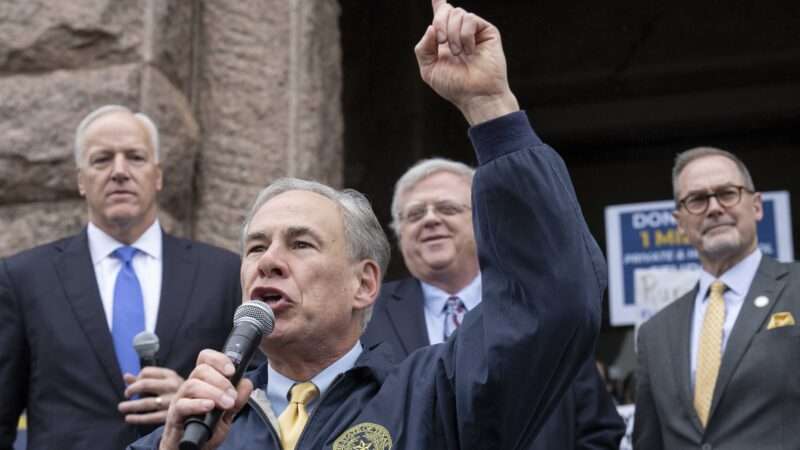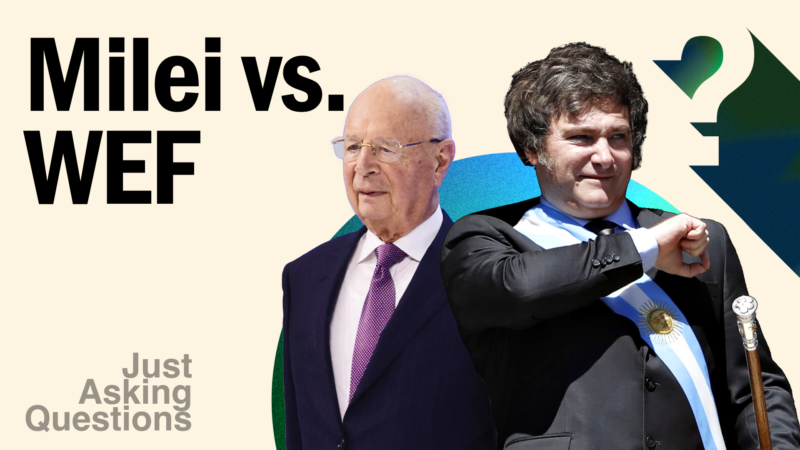Art Acevedo, Houston’s police chief from November 2016 to March 2021, has bounced around since leaving that job, serving as Miami’s police chief for just six months before he was fired in October 2021, then as the interim police chief in Aurora, Colorado, a job he left on Monday after serving 13 months. Acevedo was in the news this week for two other reasons, neither of which reflect well on his performance as a top cop.
After leaving Aurora, Acevedo planned to take a $271,000-a-year position as an assistant city manager overseeing police in Austin, where he served as police chief for nine years before moving to Houston following a job-threatening reprimand. But on Tuesday, objections from Austin City Council members and the local district attorney, who highlighted a scandal involving rape kits that went untested during Acevedo’s prior tenure, prompted him to reconsider. The next day, the Houston City Council approved an additional $1.7 million to defend Acevedo and the city against federal lawsuits stemming from a lethal 2019 drug raid based on a fraudulent search warrant, raising the total allocated for that purpose to nearly $3 million.
This Sunday is the fifth anniversary of that raid by the Houston Police Department (HPD), which killed a middle-aged couple falsely accused of selling heroin, resulting in a scandal that The Houston Chronicle described as “one of the worst to hit HPD in years.” It was my introduction to Acevedo, who made a bad impression from the beginning.
‘A Big Teddy Bear’
On a Monday evening in January 2019, plainclothes Houston narcotics officers broke into the house on Harding Street where Dennis Tuttle and Rhogena Nicholas lived. Acevedo said the cops “announced themselves as Houston police officers while simultaneously breaching the front door.” One of the officers immediately used a shotgun to kill the couple’s dog. Police said Tuttle, who according to his relatives was napping with his wife at the time, picked up a revolver and fired four rounds, hitting one cop in the shoulder, two in the face, and one in the neck—an impressive feat for a frail and disabled 59-year-old Navy veteran surprised by a sudden home invasion. The officers responded with dozens of rounds, killing Tuttle and Nicholas, who was unarmed.
After the Harding Street raid, Acevedo put the blame squarely on Tuttle and Nicholas, whom he portrayed as dangerous drug dealers. They were operating a locally notorious “drug house,” he claimed, and “the neighborhood thanked our officers” for doing something about it. Based on a tip from a resident who “had the courage” to report that “they’re dealing dope out of the house,” he said, the HPD’s Narcotics Division “was able to actually determine” that “street-level narcotics dealing” was happening at the house, where police “actually bought black-tar heroin.”
Acevedo praised the officers who killed Tuttle and Nicholas as “heroes,” paying special attention to Gerald Goines, the 34-year veteran who had conducted the investigation that led to the raid. Goines had been shot in the neck after breaching the door and entering the house to assist his wounded colleagues. “He’s a big teddy bear,” Acevedo gushed. “He’s a big African American, a strong ox, tough as nails, and the only thing bigger than his body, in terms of his stature, is his courage. I think God had to give him that big body to be able to contain his courage, because the man’s got some tremendous courage.”
Acevedo’s story began to unravel almost immediately. Neighbors said they had never seen any evidence of criminal activity at the house, where Tuttle and Nicholas had lived for two decades. Police found personal-use quantities of marijuana and cocaine at the house but no heroin or any other evidence of the drug dealing Goines had described in an affidavit when he applied for a no-knock search warrant. Nor did the search discover the 9mm semi-automatic pistol that Goines claimed his confidential informant had seen, along with a “large quantity of plastic baggies” containing heroin, at the house the day before the raid, when the informant supposedly had bought the drug there. And although Goines said he had been investigating the alleged “drug house” for two weeks, he still did not know who lived there: He described the heroin dealer as a middle-aged “white male, whose name is unknown.”
Within two weeks of the raid, it became clear that Goines had invented the heroin sale. Later it emerged that the tip he was investigating came from a neighbor who likewise had made the whole thing up. Those revelations resulted in criminal charges against Goines, the neighbor, and several of Goines’ colleagues in Narcotics Squad 15, including Steven Bryant, who had backed up the account of a heroin purchase that never happened.
The scandal prompted local prosecutors to drop dozens of pending drug cases and reexamine more than 2,000 others in which Goines or Bryant had been involved. The investigation by the Harris County District Attorney’s Office, which revealed a “pattern of deceit” going back years, led to the release or exoneration of several drug defendants who had been convicted based on Goines’ plainly unreliable word. One of them, Frederick Jeffery, had received a 25-year sentence for possessing five grams of methamphetamine. The house search that discovered the meth was based on a warrant that Goines obtained by falsely claiming an informant had bought marijuana at that address. It was the same informant who supposedly bought heroin from Tuttle.
In addition to fictional drug purchases, Goines’ search warrant affidavits frequently described guns that were never found. Over 12 years, The Houston Chronicle reported, Goines obtained nearly 100 no-knock warrants, almost always claiming that informants had seen firearms in the homes he wanted to search. But he reported recovering guns just once—a suspicious pattern that no one seems to have noticed.
After Goines was charged with two counts of felony murder for instigating the raid that killed Tuttle and Nicholas, Acevedo said Goines and Bryant, who was charged with evidence tampering, had “dishonored the badge.” But Acevedo remained proud of the other officers who participated in the raid. “I still think they’re heroes,” he said. “I consider them victims.” Acevedo argued that Goines’ colleagues had “acted in good faith” based on a warrant they thought was valid. He even asserted that “we had probable cause to be there,” which plainly was not true.
Three months later, Goines and Bryant were charged with federal civil rights violations. The indictment also charged Patricia Ann Garcia, the neighbor whose tip prompted Goines’ investigation, with making false reports. Bryant and Garcia later pleaded guilty.
‘Zero Indication’ of a ‘Systemic Problem’
“We have zero indication that this is a systemic problem with the Houston Police Department,” Acevedo said after the state charges were announced. “This is an incident that involved the actions of a couple of people.” He reiterated that take after the federal indictment, dismissing “the chances of this being systemic.”
Harris County District Attorney Kim Ogg saw things differently. “Houston Police narcotics officers falsified documentation about drug payments to confidential informants with the support of supervisors,” she said in July 2020. “Goines and others could never have preyed on our community the way they did without the participation of their supervisors; every check and balance in place to stop this type of behavior was circumvented.”
On the same day that Ogg announced charges against three narcotics supervisors, Acevedo finally released the results of a long-overdue internal audit of the HPD’s Narcotics Division, which found widespread sloppiness, if not outright malfeasance. The audit was conducted in 2019, but Acevedo kept the results under wraps for months. Given “the number and variety of errors,” University of Nebraska at Omaha criminologist Sam Walker told The Houston Chronicle, the Narcotics Division “looks like an operation completely out of control.”
In January 2021, relatives of Tuttle and Nicholas filed a pair of federal lawsuits against the city, Goines, Bryant, and various other officers and supervisors. “This untethered operation and its deadly conduct giving rise to this case is shocking, but it was sadly predictable and preventable,” said the complaint filed by Tuttle’s uncle. “The people of the City of Houston deserve better. Dennis and Reggie deserved better. Now Dennis and Reggie deserve justice, as do their grieving families.”
The complaint filed by Nicholas’ mother and brother, which named Acevedo as a defendant, described Narcotics Squad 15 as “a criminal organization” that had “tormented Houston residents for years.” According to the lawsuit, the narcotics officers’ crimes included “search warrants obtained by perjury,” “false statements submitted to cover-up the fraudulent warrants,” “improper payments to informants,” “illegal and unconstitutional invasions of homes,” “illegal arrests,” and “excessive force.”
The plaintiffs complained that the city and Acevedo “have simply removed its two fall guys—Goines and Bryant—to contain the investigation and dodge any meaningful
review or oversight of the corruption that has consumed Squad 15 and HPD.” Although Acevedo was “responsible for the oversight, supervision, discipline, and training of HPD officers, including Squad 15,” the lawsuit says, “HPD never reviewed, evaluated, disciplined, or audited Squad 15 or the Narcotics division.” Instead “the City repeatedly praised Goines in his evaluations and reviews.”
The abuses in Houston came to light only because of a disastrous raid that killed two suspects and injured four officers. If Goines had not been shot during the police assault on Tuttle and Nicholas’s home, he could have planted evidence to validate his false claims, in which case most people would have believed the story that Acevedo initially told. Goines would have been free to continue framing people he thought were guilty. Although several drug defendants had accused him of doing that over the years, their complaints were not taken seriously. “If the magistrate who Goines asked to sign a warrant to permit the raid on Harding Street had known of his history of lies and deception,” Ogg observed in May 2020, “he would not have signed it, and Rhogena and Dennis would likely still be alive today.”
Goines’ “history of lies and deception” began before Acevedo took charge of the department, but it continued on Acevedo’s watch. If supervisors aided and abetted “Goines and others” in “prey[ing] on our community,” as Ogg concluded, the top supervisor of those supervisors surely bears some of the blame. Likewise if “every check and balance in place to stop this type of behavior was circumvented,” as Ogg also found. “Obviously,” says Mike Doyle, an attorney representing Nicholas’ relatives, Acevedo “was not properly supervising and not properly investigating misconduct.”
The two lawsuits against Acevedo et al. have been consolidated, and a trial before U.S. District Judge Alfred Bennett is scheduled to begin in September, more than five and a half years after Acevedo’s “heroes” killed Tuttle and Nicholas. So far, Doyle says, he and his colleagues have taken a dozen or so depositions, and Acevedo is scheduled to be deposed on February 8. “Not only will they pay millions to defend the indefensible,” Doyle told The Houston Chronicle, “but it’s going to be over five years that you get to sit at home every holiday with your family with no justice.”
‘Stunning Disregard’
The Harding Street raid is not the only blemish on Acevedo’s career.
In 2004, when Acevedo was an assistant chief with the California Highway Patrol, he faced a sexual harassment investigation. He allegedly “kept sexually explicit Polaroid photographs” of a former girlfriend, also a cop, “in the glove box of his state-issued car and showed them to other supervisors after the affair ended.” Acevedo denied doing that, complaining that the charges were aimed at blocking his promotion to CHP commissioner.
Sexual assault victims who dealt with police in Austin during Acevedo’s time there complained that their cases were neglected. A 2018 lawsuit, the Austin American-Statesman noted on Tuesday, “highlighted concerns that had previously surfaced about a backlog of DNA samples and about mold contaminating some of the evidence.” The city and Travis County settled that lawsuit and another making similar claims, and the city “held a news conference Tuesday to apologize to the plaintiffs.” Acevedo “announced his withdrawal” from the new administrative position “about 20 minutes before the news conference started.”
Acevedo had been hired by the interim city manager, a decision that dismayed Travis County District Attorney José Garza and five city council members who had “serious concerns” about welcoming Acevedo back. “Art Acevedo’s return is a step backward for survivors of sexual assault,” Garza said on Saturday. “His appointment represents a stunning disregard for their pain and our community’s values.” Acevedo attributed the backlash to “politics and power struggles.”
Acevedo’s tenure as Austin’s police chief also ended unpleasantly. A couple of months before his move to Houston, Austin City Manager Marc Ott reprimanded Acevedo for insubordination, fined him five days’ pay, and warned that his job was in jeopardy. The main issue was the complaint that Acevedo had rushed to judgment about a fatal police shooting of an unarmed black teenager named David Joseph. Acevedo fired Geoffrey Freeman, the officer who killed Joseph, a month after the shooting, saying he had violated department policy. That decision outraged the local police union, and city officials told Acevedo to stop publicly commenting on the case. His failure to do so was the official justification for the reprimand and penalty, although Ott also mentioned unspecified “operation and judgment concerns.”
Acevedo’s problems in Houston were not limited to the Narcotics Division scandal. In 2020, The Houston Chronicle noted that “Houston’s rate of unsolved murders is soaring.” At that point, the clearance rate was just 49 percent, down from 89 percent in 2011. The 2020 rate “lagged those of other Texas cities” and “many of the nation’s other large cities.” The NBC affiliate in Houston reported that the homicide clearance rate had risen to 82 percent by December 2022, about two years after Acevedo left.
Acevedo’s switch from Houston to Miami, a much smaller city, seemed like a downgrade. But when Acevedo was hired in March 2021, Miami Mayor Francis Suarez hailed him as “the best chief in America”—”the Tom Brady or Michael Jordan of police chiefs.” The enchantment did not last. Acevedo was fired that October.
City Manager Art Noriega said Acevedo had managed to alienate pretty much everyone through a series of gaffes, inflammatory statements, and controversial decisions. “The relationship between the chief and the police department he leads—as well as with the community—has deteriorated beyond repair,” Noriega said in a statement announcing Acevedo’s suspension. “Relationships between employers and employees come down to fit and leadership style and unfortunately, Chief Acevedo is not the right fit for this organization.”
Why did Acevedo leave his job in Aurora? He said it was for family reasons.
There was speculation that Acevedo’s departure had something to do with a heated argument between him and Pete Schulte, the public safety client manager at the Aurora City Attorney’s Office, in the rotunda of the city courthouse on January 12, four days before Acevedo announced that he was leaving. Sound-free surveillance video, obtained by the Aurora Sentinel, captured an impassioned Acevedo grabbing Schulte’s collar and poking him in the chest. But Schulte dismissed the encounter as no big deal, and City Manager Jason Batchelor said “there’s no connection between that incident and Art’s departure.”
‘I’m Not Sure I’d Hire Myself’
Given the pattern so far, Acevedo probably will land another job in law enforcement soon. In December 2019, he sat down for a Texas Monthly interview with Keri Blakinger, who as a Houston Chronicle reporter had played a leading role in exposing the abuses and corruption within his department’s Narcotics Division. “I’m not sure I’d hire myself,” he said, “because I’m well-known for speaking my mind.” But Acevedo’s lack of tact is not the only reason to think twice about hiring him.
When Blakinger asked Acevedo about the Harding Street raid, he characteristically patted himself on the back for uncovering Goines’ misconduct. The incident “opened up a huge scar within the department,” he said. “But what would have been more tragic for this community, and for this department, than the incident itself is for the department to have failed to investigate it to the extent that we did.”
Although Acevedo had blamed the travesty on “a couple of bad apples,” Blakinger said, “a recent Houston Chronicle investigation found a number of other instances of officers filing false affidavits and misrepresenting the use of informants. How many bad apples are there?” At this point, Acevedo lost his patience.
“This is the last I want to talk about it; we need to move on to something else,” he said. “When you look at our department and you look at the kind of work they’ve done, I think that on balance, there’s been a lot worse out there.” That was hardly anything to brag about. Nor was this comment reassuring: “I don’t think there’s a policy or a process that can guarantee 100 percent that something like this would not happen.”
Acevedo understandably wants to “move on to something else.” The lawsuits filed by the families of Dennis Tuttle and Rhogena Nicholas nevertheless will force him to explain why he bears no responsibility for their deaths.
The post 5 Years After a Deadly Drug Raid, Houston's Former Police Chief Might Finally Be Held Accountable appeared first on Reason.com.
from Latest https://ift.tt/Vlh5xuK
via IFTTT






